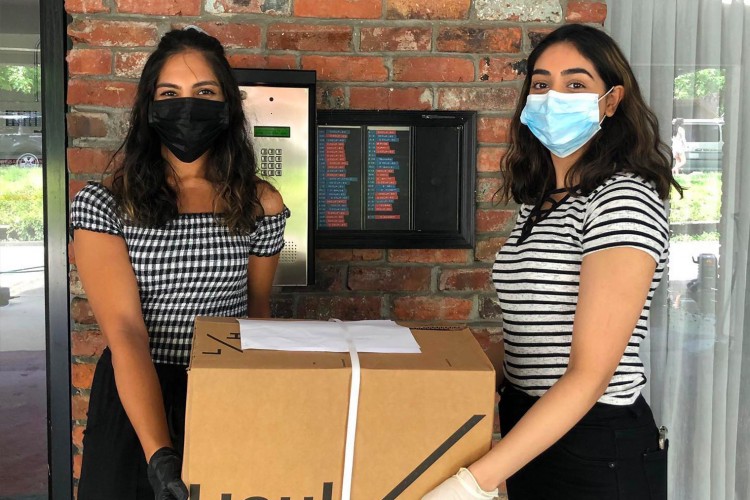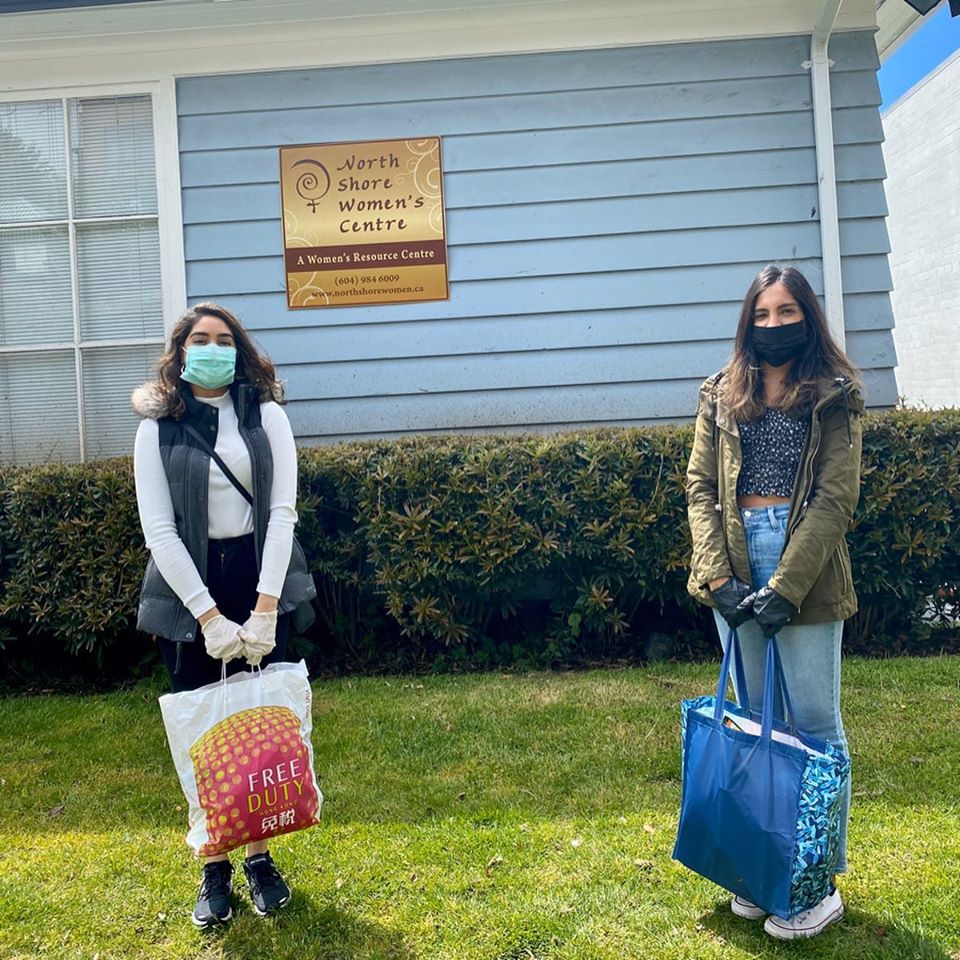
UBC Sauder students launch helpline to connect vulnerable residents with local volunteers

Physical distancing guidelines have altered nearly every aspect of our lives, from the way we work to how we shop and connect with key services. But for people who face higher risks from COVID-19, additional support can be hard to access. Two incoming UBC Sauder Master of Management students decided to tackle this problem by launching COVIDhelp Vancouver.
All across the world, people are settling into the new normal, adjusting daily routines in ways big and small. From working from home and wearing masks in public to telehealth appointments and virtual graduations and weddings, ingenious adaptation has been required amid the current global pandemic. But for people facing higher health risks, such as older people, those with limited mobility or compromised immune systems, a helping hand is both necessary and hard to find.

Enter COVIDhelp Vancouver, a virtual helpline platform that connects at-risk individuals with volunteers who help with tasks such as delivering groceries, dog walking, or simply having a friendly chat. Launched in April by two incoming UBC Sauder students, the initiative is filling a critical need in local communities.
“We have around 40 volunteers registered with us right now, and we’ve completed close to 25 individual tasks so far,” says co-founder Imaan Jiwa.
Using a virtual, volunteer-run call centre and online forum, COVIDhelp Vancouver makes it easy to match individuals requesting help with volunteers looking to give their time. An app also enables volunteers to choose tasks at their own convenience.
“There are so many people who want to help, and there’s so many people who need help, so we thought if there’s a platform that could connect the two, that would just make it so easy and great,” says Jiwa.
According to Riva Siddiqui, COVIDhelp Vancouver’s other co-founder, “It’s really just optimizing how we can empower the community and making sure that people know they’re not alone at this time, that we are all here for each other while going through this together.”
Leveraging technology innovation
What sparked their idea? They were looking for ways to help during the ongoing health crisis when they stumbled upon Zelos, an Estonian start-up specializing in providing technology solutions to coordinate volunteer teams. Originally designed with festivals and conferences in mind, Zelos has pivoted to solutions that can help reduce the workload of emergency services.
“They’ve been a really big help, coaching and mentoring us, sharing their expertise and also lending us their software for free,” says Jiwa. “We’re optimizing technology to really enable connectivity throughout the community.”
Jiwa and Siddiqui have also learned from other nonprofits and businesses to determine best practices. In many ways, their initiative has been a crash course in business management.
“From the management experience we’ve gained by overseeing social media and print marketing, handling operational finances, being coached by mentors in the nonprofit sector and coaching apprentices working alongside COVIDhelp, we’ve learned a lot about the challenges facing not only nonprofits but any organization, and how to overcome them,” notes Jiwa.
Finding local partners to create greater impact
Besides promoting COVIDhelp Vancouver through social media and word of mouth, Jiwa and Siddiqui have also sought out community partnerships to amplify their impact.
“We’re trying to expand as far as we can, so that we can serve as many people as we can,” explains Siddiqui.

So far, they’ve supported Feeding Our Frontlines by helping provide meals to healthcare workers and delivered hampers for the North Shore Women’s Centre.
Veronica Ferguson, a volunteer with COVIDhelp Vancouver, helped with the hamper drive. “It made me realize how small things can really touch the hearts of others,” she says. “These women have families to take care of and some don’t want to risk leaving their homes due to the virus or they have no choice because they have young ones that can't be left alone.”
Sherrie Dilley, a retired academic, has also been volunteering by delivering groceries and assisting people with tasks such as electronic banking. “For the first month or so of the pandemic, there was a great deal of really quite desperate need,” Dilley recalls. “It was overwhelming at first, and of course it took time for organizations and governments to be able to meet these new needs.”
For volunteers like Ferguson and Dilley, COVIDhelp Vancouver has provided an avenue for them to serve in their community and help those experiencing isolation, loneliness and loss of community.
Beyond the current crisis
As the province moves forward reopening sectors of the economy, it’s getting easier for some people to leave their houses and resume their daily routines, reducing the need for support from initiatives like COVIDhelp Vancouver. But Jiwa and Siddiqui believe many people will continue to require extra assistance long after things return to normal for much of the population.
“We’re brainstorming ways to make our organization sustainable in the future and make it grow over the long term,” says Jiwa.
Both students are looking forward to combining the real-life experience they’ve gained through their nonprofit with their formal education in business management.
“I hope to gain a deeper understanding of how to apply socially responsible leadership anchored in growth, authenticity and compassion, and I’m hoping to connect with like-minded people through the program,” says Jiwa.
“COVIDhelp has been one of the most rewarding experiences I’ve had during my academic career,” says Siddiqui. “This project has helped me expand my social entrepreneurship skills through outside-the-box thinking, resource management, and finding innovative marketing strategies.”